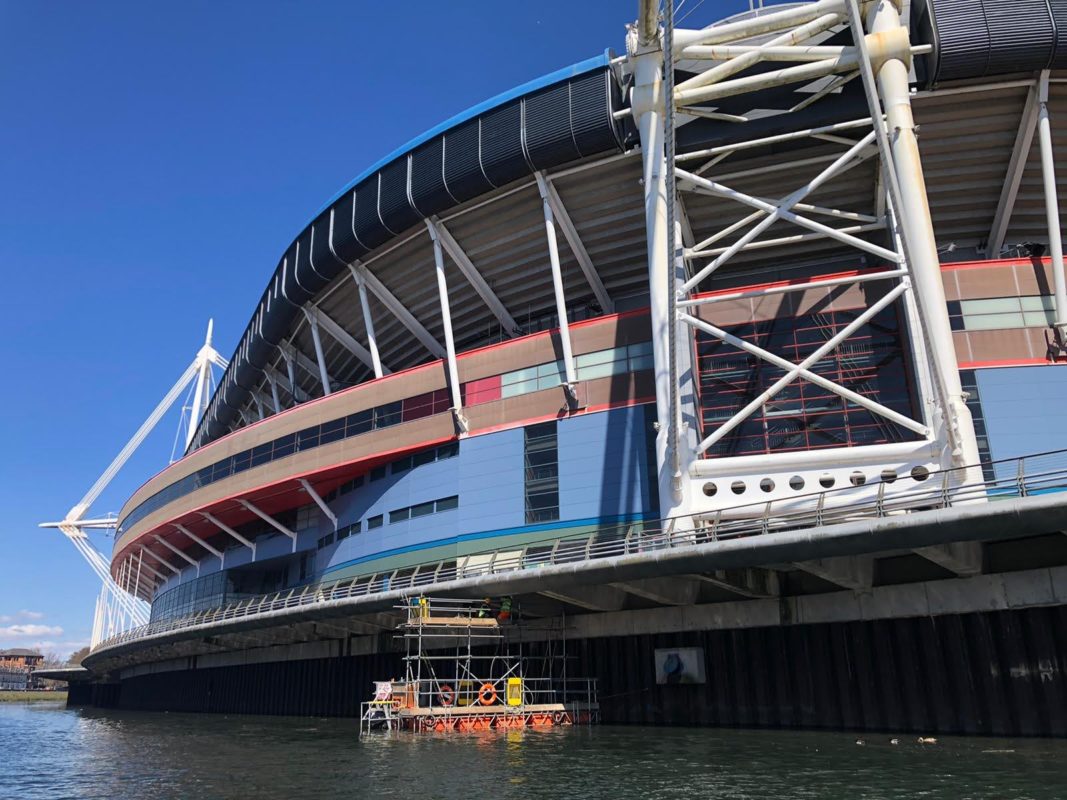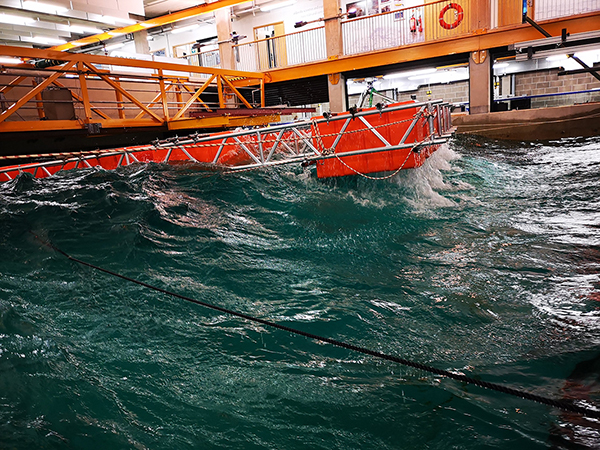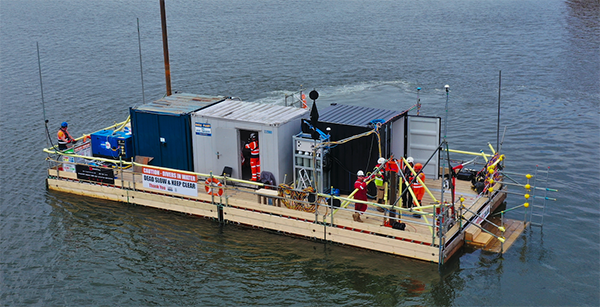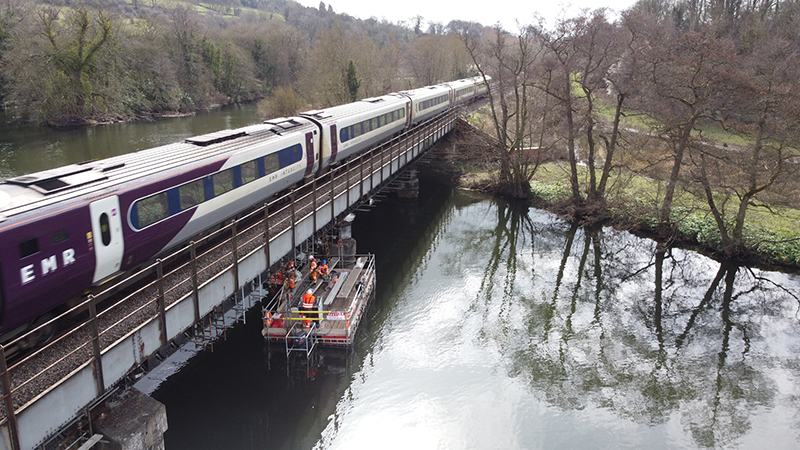
A growing start-up business, which provides a floating access solution for work being carried out above water, has revealed it is looking to break into the Scottish market in the year ahead.
ScaffFloat was launched in 2020 by Cornwall-based marine professional Toby Budd as a means of offering safer access to infrastructure on waterways. The system uses patented plastic floats designed to be compatible with as many scaffolding beam manufacturers as possible to create a self-propelled pontoon that utilises a hoisting system to provide access to works.
“What we do is give access to contractors – a concrete guy, a driller, a welder. A lot of these professionals are not very comfortable working from water as they haven’t done it before and so they’re not familiar with it,” Toby told Project Scotland, before explaining how the firm used the University of Plymouth’s COAST Laboratory’s ocean basin to carefully develop the solution’s stability in tricky conditions allowing for a ‘stable, solid-edge’ protection with a ‘nice flat deck’ to work from.

Safety is the number one priority for the firm, with a bespoke offering given to clients which includes ScaffFloats designed specifically for projects, as well as a skipper to man the pontoon and watch over contractors. However, there is also a cost and carbon-saving element.
“If a suspended scaffold needs to be installed under a bridge, instead of the scaffolders hanging under the bridge to install it, we can provide them much easier, faster access and ultimately save them a lot of time and money,” Toby explained. He added that light works which don’t necessarily require full encapsulation – such as welding and cutting – can be done at a ‘much lower cost’ from a ScaffFloat.
“It’s also a lot safer to work from a ScaffFloat platform to make all the connections under the bridge and then install the scaffolding from the ScaffFloat. We can also load in all the materials, which saves a lot of time, and if it’s a remote bridge we can get a lot of materials down the waterway and transport them to site.”

The business is currently carrying out work on railway bridges spanning rivers, with its offering allowing firms to float materials and plant – including a crane – to hard-to-reach sites, as opposed to lugging them through fields.
Having recently continued its partnership with global engineering firm Richter, and last month penned a deal with BAE Systems to provide a pontoon for a Royal Navy project, Toby said ScaffFloat now has its eyes set on cracking the Scottish market.
“We really want to work a lot more in Scotland,” he explained, revealing that the only Scottish project so far was for a display in the River Clyde at the UN COP26 climate summit in Glasgow in late 2021.

Marine assets, piers, and structures built on water with piles are described as ‘prime’ locations for ScaffFloat to operate on. “There’s a huge number of ports in Scotland, as well as waterways, lochs, canals and rivers, so the geography is very well suited to ScaffFloat,” Toby added.
Keen to build a rapport with Scottish scaffolding firms to help deliver more projects across the country, ScaffFloat already has Glenrothes-based I-Scaff Access Solutions as an approved installer of its solutions, while Alexandria’s WSRS (Water Safety & Rescue Service) is a certified marine partner of the firm.
“We’re certainly in a position (to start work in Scotland),” Toby added. “It may be a long drive, but we wouldn’t charge for that – we wouldn’t want to penalise a Scottish company because we’re based in Cornwall.”








